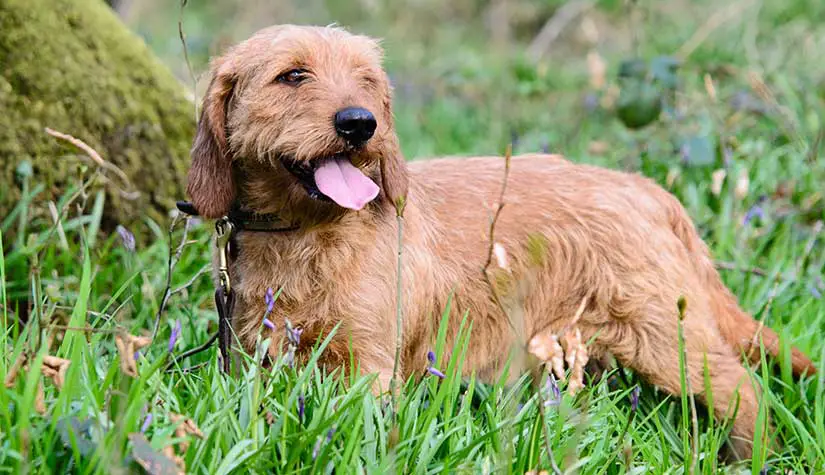The Basset Fauve de Bretagne is a breed of dog that has a rich history. Originally bred as a hunting dog, the Basset Fauve de Bretagne is now popular as a household pet due to its affectionate and playful nature. In this article, we will take a closer look at the history of the Basset Fauve de Bretagne, and how it has evolved over the years from a hunting dog to a family pet.
History of the Basset Fauve de Bretagne
The Basset Fauve de Bretagne originated in France in the 16th century, and it was bred to be a hunting dog. The breed was specifically created to hunt small game, such as rabbits and hares. The Basset Fauve de Bretagne is known for its exceptional sense of smell and its ability to track prey over long distances.
In the 19th century, the Basset Fauve de Bretagne became popular among the French nobility as a hunting dog. They were often used to hunt wild boar, deer, and other large game. The breed was also used in packs, with several dogs working together to hunt prey.
Over time, the Basset Fauve de Bretagne became more popular among the general public, and it was eventually recognized as a distinct breed by the French Kennel Club in 1924. Since then, the breed has become more popular around the world, and it is now recognized by the American Kennel Club and other major dog organizations.
Physical Characteristics
The Basset Fauve de Bretagne is a small to medium-sized dog, weighing between 36 and 40 pounds and standing between 12 and 15 inches tall at the shoulder. They have a short, wiry coat that is usually a reddish-brown color, and they have long, droopy ears that are characteristic of the Basset breed.
One of the most striking physical characteristics of the Basset Fauve de Bretagne is its large, expressive eyes. They have friendly and curious expression that makes them very endearing to their owners. They are also known for their long, powerful legs, which allow them to move quickly and easily through rough terrain.
Personality Traits
The Basset Fauve de Bretagne is known for its affectionate and playful nature. They are very social dogs and thrive on human companionship. They are also very loyal and protective of their families, and they make great watchdogs.
Despite their small size, Basset Fauve de Bretagne dogs are very active and energetic. They love to play and run around, and they need plenty of exercises to stay healthy and happy. They are also very intelligent dogs and are known for their problem-solving abilities.
Training and Care
Training a Basset Fauve de Bretagne can be challenging, but it is also very rewarding. They are very intelligent dogs, but they can be stubborn at times. It is important to start training them early and to be consistent with their training.
The Basset Fauve de Bretagne is a very active dog and needs plenty of exercises. They are not suited to apartment living and need a large yard or open space to run around in. They also need plenty of mental stimulation, such as puzzles or interactive toys.
The Basset Fauve de Bretagne has a short, wiry coat that is easy to care for. They need to be brushed once a week to remove loose hair and to keep their coat looking healthy. They only need to be bathed occasionally, as their coat is naturally water-resistant.
In terms of health, the Basset Fauve de Bretagne is a relatively healthy breed. They can be prone to ear infections due to their long ears, so it is important to keep healthy and clean. The Basset Fauve de Bretagne’s popularity as a hunting dog began to decline in the mid-20th century as hunting methods changed and other breeds became more popular. However, the breed’s friendly and loyal nature made it a natural fit for life as a household pet. In the 1970s, breeders began to focus more on the Basset Fauve de Bretagne’s potential as a companion animal and started breeding dogs with more emphasis on temperament and conformation.
Today, the Basset Fauve de Bretagne is still used as a hunting dog in some parts of France, but it is primarily kept as a companion animal. The breed is recognized by the American Kennel Club (AKC) and the United Kennel Club (UKC), and it has a small but dedicated following of breed enthusiasts around the world.
As with any breed, it is important to research Basset Fauve de Bretagne’s temperament, health concerns, and exercise needs before bringing one into your home. With proper care and attention, this charming and affectionate breed can make a wonderful addition to any family.









